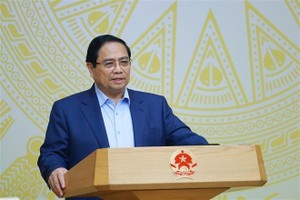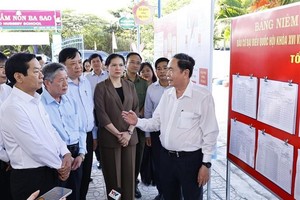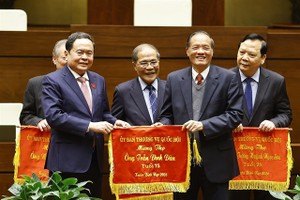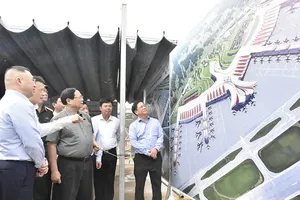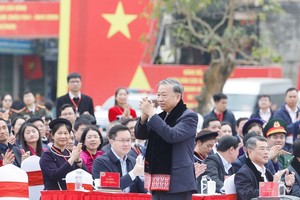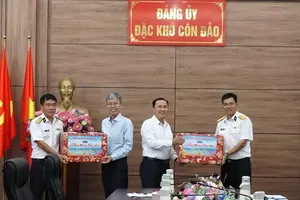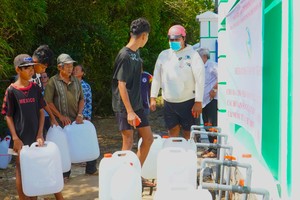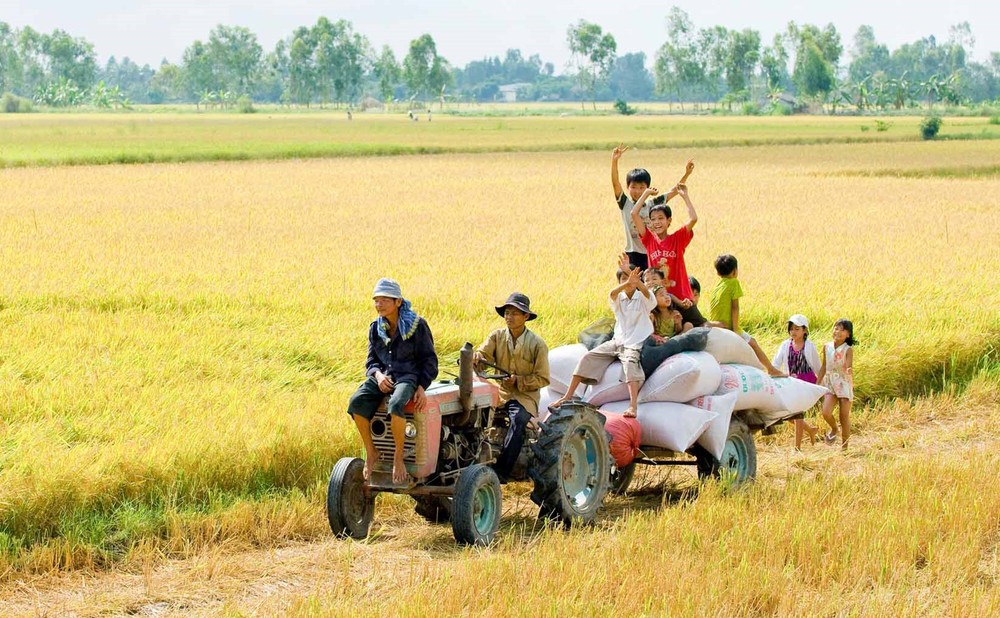
Submission of a draft political report of the Central Executive Committee of the Vietnam Farmers' Union to the 8th National Congress of the Vietnam Farmers' Union has evaluated the emergence of a new generation of farmers and the changes in rural areas in the country as well as new challenges.
According to the report, many advantages and many difficulties co-exist. As per the Party's resolutions, focusing on Resolution No. 19-NQ/TW of the 13th Party Central Committee, the agriculture sector continues to affirm its national advantage for food security and it becomes a pillar of the economy, especially during periods of financial crisis and difficulties caused by the Covid-19 pandemic.
Up to now, agricultural production has developed in both scale and level, gradually shifting to commodity production with many large-scale paddy fields and production areas. Agricultural exports increased rapidly in both output and value, making Vietnam the world's leading exporter of rice, seafood and a number of other agricultural products. According to data from the Vietnam Farmers' Union, farmers are still a large force in society, accounting for more than 1/3 of the country's population and 49.17 percent of rural households with more than 9.1 million farmer households.
Chairman of the Vietnam Farmers' Union Luong Quoc Doan said that the farming class always believes in the leadership of the Party and the policies of the State, and has well promoted its role as a subject in agricultural and economic development. rural economy, especially in new rural construction. They proactively develop farms, associate with cooperative groups and cooperatives, and link with large-scale production enterprises.
Furthermore, farmers' skills have been increasingly a mix of technology and biology skills rather than pure agricultural; plus, their life, income and employment are constantly improving. However, limitations and many new difficulties and challenges still exist in the national agriculture, farmers, and rural areas.
Agricultural development is not sustainable, farmers still lack jobs; as a result, many of them left their homeland and fields to other places to find employment. Rural development is not uniform, the rural economic structure is shifting slowly, mainly relying on small farmers.
Evaluating the achieved results, as well as proposing tasks in the coming time, Mr. Luong Quoc Doan said that farmer associations at all levels need to better demonstrate their role in supporting farmers to fo business to make rich and develop the collective economy. Accordingly, farmers' associations need to provide financial support for farmers in addition to vocational training, science and technology transfer, digital transformation in agriculture, branding-building and agricultural product consumption.
According to the assessment of the Central Executive Committee of the Vietnam Farmers' Union, term VII, one of the highlights of the 2018-2023 term is ‘The movement of farmers emulating good production and business and ‘Uniting to help each other get rich and sustainable poverty reduction”. Through the movement launched by the Vietnam Farmers' Association, many effective economic models were introduced. Up to now, the whole country has over 3.6 million households achieving the title of good farmers in production and business.
Mr. Nguyen Hong Son, Head of the Propaganda and Education Board of the Central Vietnam Farmers' Union, said that many localities have created and diversified gathering models to attract farmers to participate. In the past 5 years, good farmers in production and business have supplied plants, seeds, and agricultural materials to over 815,000 poor households and households in difficult circumstances in addition to technical guidance. The union also helps consume agricultural products worth over VND6,720 billion (US$ 275,462,221).
Thanks to that, over 108,000 farming households have escaped poverty and are getting rich. According to Mr. Nguyen Hong Son, in the past 5 years, farmer associations at all levels have had an important role in helping peasants to make rich. Among them, it is necessary to mention the important role of the Farmer Support Fund chaired by the Central Farmers' Union. In 5 years, the Farmer Support Fund has given VND 1,761 billion to support farmers, bringing the total fund source of the entire association system to date to VND 4,827 billion.
Along with the association's support capital, in recent years, associations at all levels have actively supported millions of farmers to borrow capital from credit institutions with over VND 170,000 billion to invest in production, business, and suppressing loan sharking and black credit, contributing to maintaining political security and social order and safety in rural areas.
Each year, over 110,000 farmers receive vocational training, of which more than 80 percent have jobs and stable incomes, introducing jobs to over 20,000 farmers. Every year, associations at all levels also organize training courses and transfer science, technology and high technology in agricultural production for over 11.8 million members, exceeding the Congress target by 39.24 percent. Last but not least, the union also supports and guides farmers to successfully build 12,927 pilot models, organizes farmer science and technology clubs, and technical innovation competitions for farmers to apply in production.
The Union also participates in supporting farmers in many localities to build 5,003 OCOP products (One Commune One Product Program) that are recognized as having three-star grades or more, opening up opportunities to link production chains and improve agricultural value.
